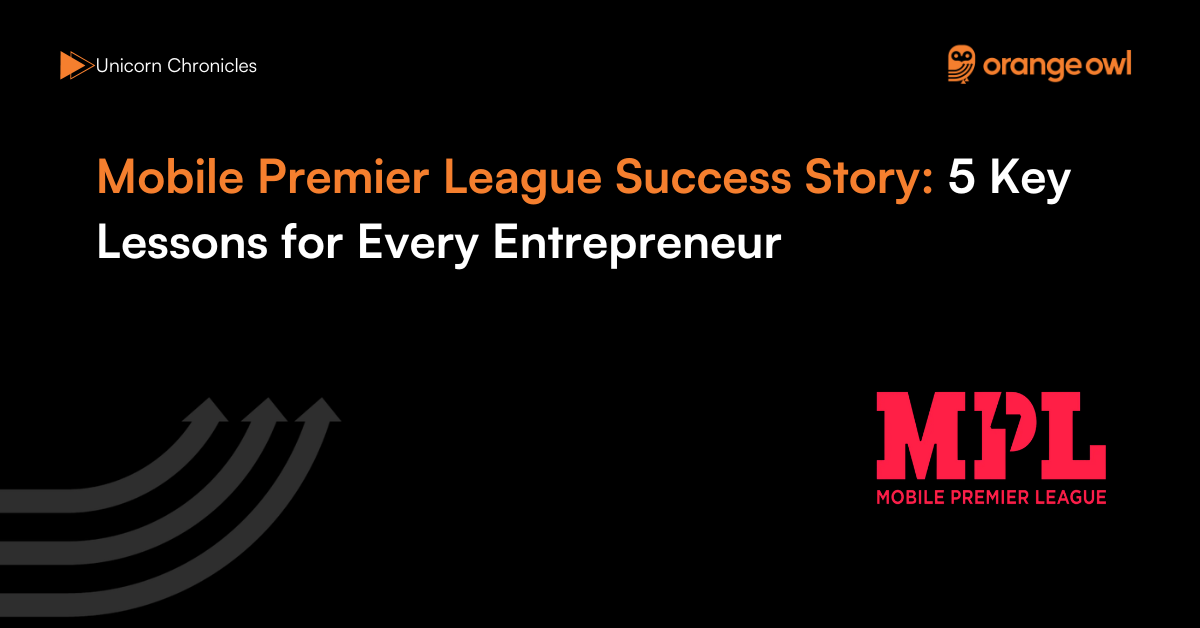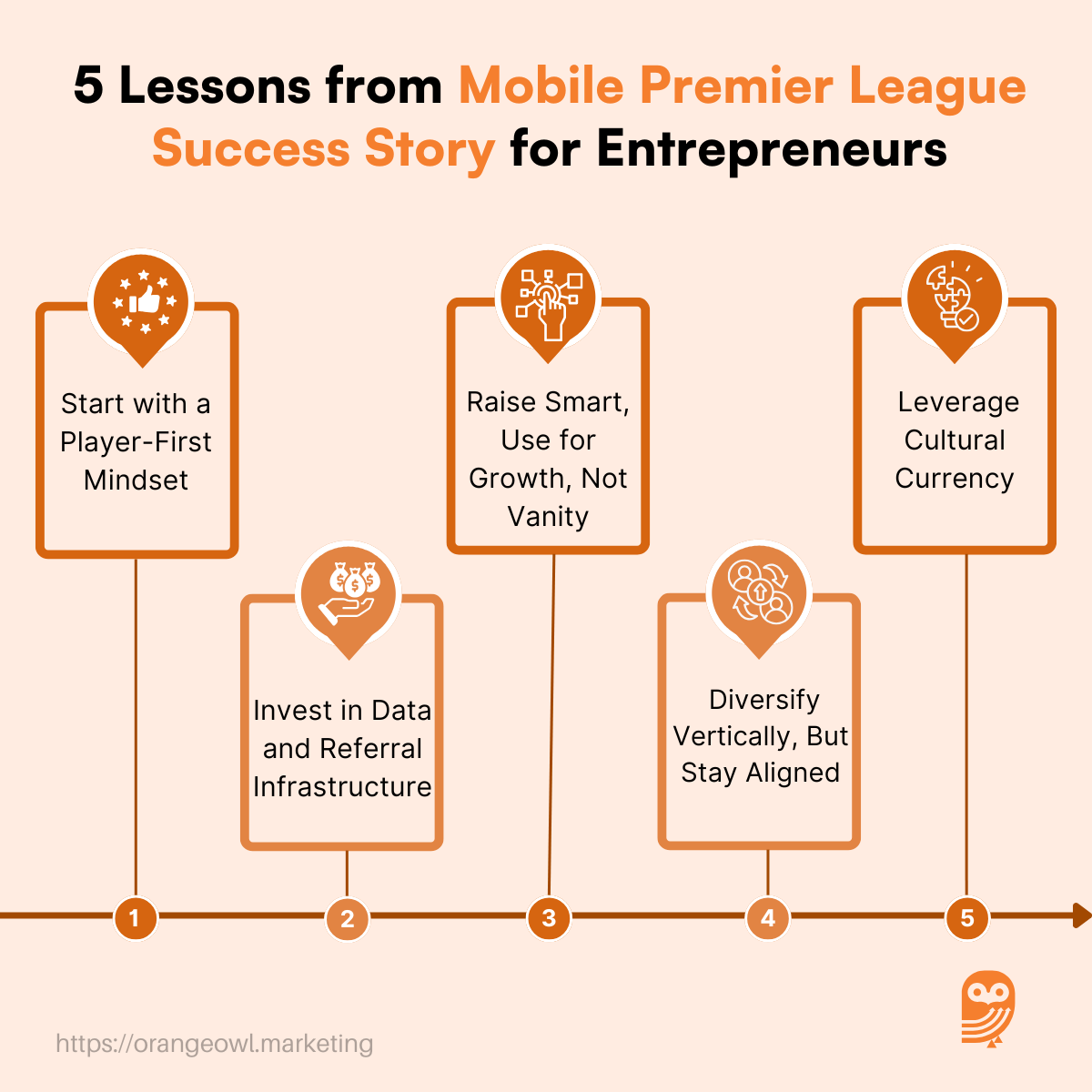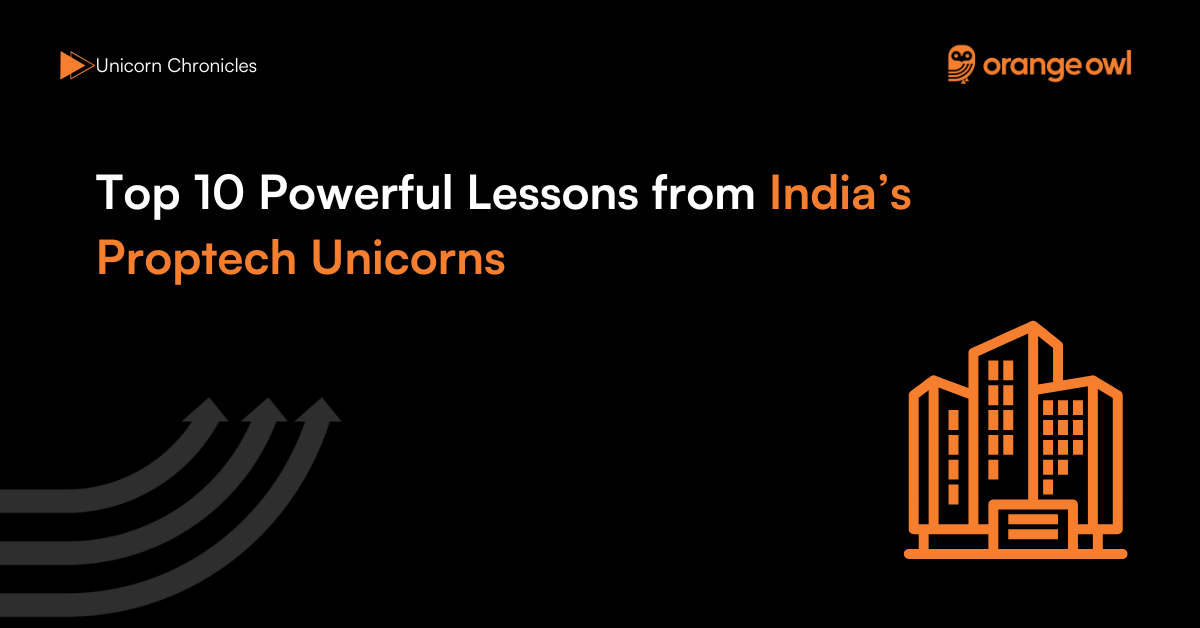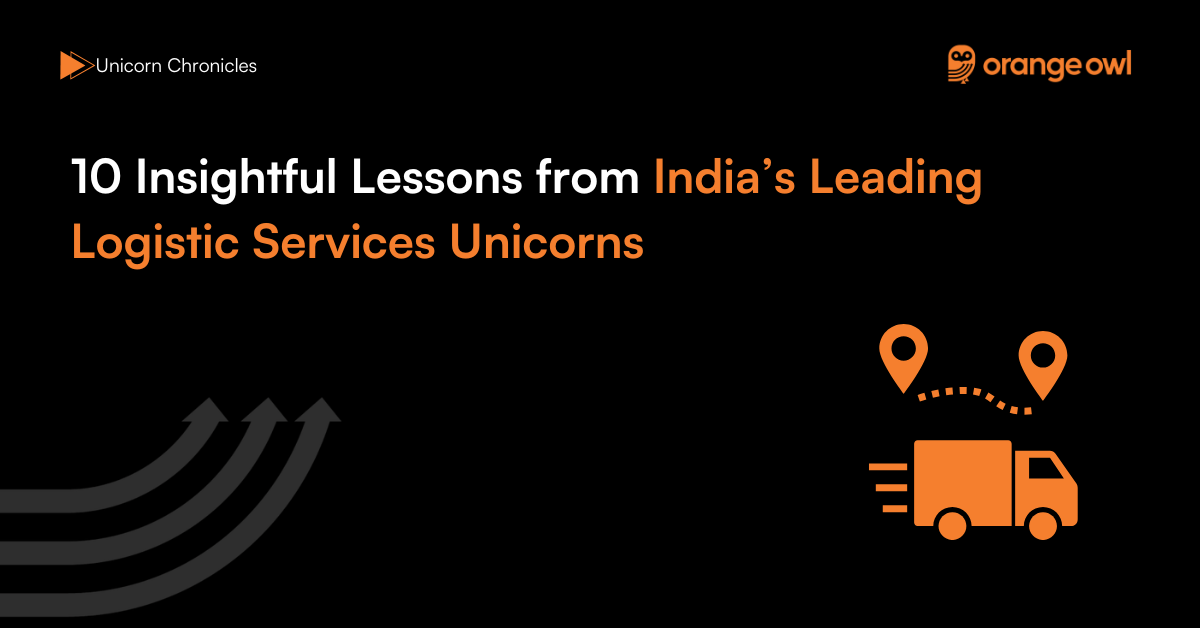Mobile Premier League Success Story: 5 Key Lessons for Every Entrepreneur
Vivek Goel
June 16, 2025

Table of Contents
Introduction
In a country where gaming was once dismissed as a mere pastime, Mobile Premier League (MPL) rewrote the narrative—transforming casual entertainment into a competitive and rewarding digital sport. Founded in 2018 by Sai Srinivas Kiran G and Shubham Malhotra, MPL emerged from the idea that any smartphone user could become a gamer, and that gaming, when paired with skill and incentives, could engage millions daily. What started as a modest experiment quickly snowballed into a full-blown revolution in India’s mobile gaming industry.
Today, MPL stands as one of India’s largest and most influential esports and real-money gaming platforms, boasting 90+ million registered users and a rich portfolio of 60+ games ranging from fantasy cricket and quiz-based challenges to puzzle and arcade games. Whether you’re a sports buff building your dream fantasy team or a trivia wizard chasing rewards, MPL offers something for everyone—making gaming both inclusive and aspirational.
Their rise is nothing short of meteoric. With backing from top investors like Sequoia Capital, Moore Strategic Ventures, and Times Internet, MPL has scaled across India and expanded into Southeast Asia, the U.S., and Europe. The company employs over 800+ people and operates with a clear mission: to make gaming accessible, trustworthy, and rewarding for all.
Its FY24 results speak volumes—$88 million in India revenue, up 35% YoY, and $130 million globally, marking a 22% growth across operations. Even more impressively, MPL has managed to achieve profitability while scaling aggressively, a rare feat in the high-burn consumer tech sector.
As CEO Sai Srinivas articulates in interviews:
“Our primary focus is to prioritise the needs and preferences of players, ensuring an exceptional gaming experience.”
This focus on player-centric design, combined with smart execution and timely pivots, has helped MPL rise above regulatory hurdles, fierce competition, and changing user behavior.
Origin Story
The seeds of Mobile Premier League (MPL) were sown in 2018, shortly after Sai Srinivas Kiran G and Shubham Malhotra wrapped up their previous venture, CREO, which was acquired by Hike. With experiences from top-tier firms like Zynga under their belt, the duo recognized a massive gap in India’s mobile-first gaming ecosystem: the lack of a unified, skill-based competitive platform that could reward users with real money.
At a time when casual gaming and fantasy leagues were booming, they saw an opportunity to merge esports with instant gratification, all on the mobile screen.
Their founding thesis was bold but clear—“What if everyone could be a champion just by picking up their phone?” With that, MPL launched with a few hyper-casual games, cash-backed contests, and daily leaderboard tournaments. The response was instant.
By September 2020, their model had attracted global investor confidence, with a $95 million Series D round led by Composite Capital and Moore Strategic Ventures, valuing the company at nearly $945 million. A year later, in 2021, MPL crossed into the unicorn club with a Series E funding round at a whopping $2.3 billion valuation, cementing its position as one of India’s fastest-scaling startups.
From humble beginnings to unicorn stature, the founders never wavered from their original intent: to make gaming rewarding, skill-based, and accessible to everyone. As Sai once said,
“We weren’t trying to create the next viral app—we wanted to build the next great gaming ecosystem out of India.”
Business Landscape and Early Challenges
When MPL entered the market in 2018, India’s gaming scene was exploding. With over 300 million active gamers, driven by the Jio revolution, fantasy cricket mania, and the rise of mobile-first entertainment, the space was ripe—but also saturated.
Platforms like Dream11, My11Circle, Nazara, and others were already capturing mindshare. MPL’s challenge wasn’t just differentiation—it was trust. Real-money gaming comes with layers of complexity: fraud prevention, payment integration, player verification, and fair matchmaking.
MPL tackled these early challenges head-on. First, they focused on tight product loops—integrating seamless onboarding, referral programs, and a gamified retention engine that kept players coming back daily.
Second, they prioritized transparency and fairness by investing heavily in in-game analytics, anti-cheat systems, and performance benchmarking across multiple devices. Even as regulatory scrutiny around online gaming increased, MPL adapted swiftly—implementing KYC standards, state-wise compliance frameworks, and responsible gaming policies to maintain trust.
Yet, perhaps the biggest early hurdle was perception. Real-money gaming was often lumped into the “gambling” narrative. MPL’s founders countered that by showcasing the skill-based nature of their games and highlighting success stories of everyday users. This, coupled with constant product evolution and a mobile-first UI, helped MPL carve out a niche where many failed.
As the co-founders often note,
“Building MPL wasn’t just about launching a gaming app—it was about creating a behavior shift where users see mobile gaming as a serious, skill-driven pursuit.”
Growth Strategies
At the heart of MPL’s meteoric rise is a relentless focus on player-centric design. From day one, the platform prioritized clarity, trust, and fairness within its user experience.
Whether it was transparent prize pools, intuitive UI flows, or real-time leaderboards, every element was built with the player’s mindset in mind. As co-founder Sai Srinivas emphasized in an interview, “We prioritize the needs and preferences of players”—a commitment that eventually helped MPL reach net profitability by December 2022, a rare feat in the Indian gaming landscape.
MPL’s growth wasn’t just intuitive—it was data-driven. With strategic integrations like AppsFlyer for attribution and CleverTap for engagement, the company built a robust referral and analytics infrastructure. This allowed them to track user journeys across cohorts, A/B test onboarding flows, and maximize player lifetime value.
These efforts paid off with a 58% lower uninstall rate and 4.7% higher ARPU, especially during marquee events like IPL and World Cup seasons when user acquisition spikes. The platform’s ability to trigger personalized notifications, reward loops, and real-time offers turned casual users into loyal players.
Crucial to scaling was MPL’s smart fundraising approach. In 2020 and 2021, the company closed Series D and E rounds, raising capital at valuations of $945 million and then $2.3 billion, respectively. These infusions weren’t just headline-grabbing—they enabled rapid product innovation, talent acquisition, and international expansion into the U.S., Europe, Southeast Asia, and Africa.
As the product matured, MPL also evolved its content strategy. What began as a casual gaming app in 2018 soon diversified into skill-based gaming, fantasy sports, and esports.
The company even ventured into Web3 experiments and launched Mayhem Studios, a AAA gaming division focused on console-quality mobile experiences. This multi-vertical, multi-geography approach allowed MPL to future-proof itself against industry fatigue and create new monetization layers beyond the traditional gaming loop.
Marketing Strategies
MPL’s marketing playbook stands out for what it doesn’t do: no heavy spending on paid user acquisition. Instead, the company leaned into referral-driven growth powered by in-app incentives, community sharing, and trust-based virality.
This approach kept customer acquisition costs (CAC) low and ensured high ARPU (Average Revenue Per User)—a win-win for both users and investors. Every player who shared the app became a brand ambassador, and every win led to another signup.
The platform also leveraged deep data-led personalization to drive re-engagement. By analyzing recency, frequency, and value (RFV) data, MPL could segment users and deploy personalized nudges during key events—like fantasy contests during IPL, cricket seasons, or festive promotions. These nudges weren’t spammy—they were timed to user interest, boosting engagement and retention rates.
What truly elevated MPL’s visibility, though, was its esports and influencer strategy. From signing cricket icon Virat Kohli as brand ambassador, to sponsoring IPL teams like RCB and KKR, MPL embedded itself into India’s cultural consciousness.
The launch of MPL Sports Apparel and in-game league tournaments furthered this community-driven branding, creating a bridge between virtual gaming and real-world identity. These moves didn’t just add brand value—they made MPL aspirational.
5 Key Lessons Every Entrepreneur Should Learn from MPL
1. Start with a Player-First Mindset
MPL’s journey begins and thrives with a deep understanding of its users. The founders didn’t just build a gaming platform—they built trust. From transparent prize pools to secure payment gateways and fair competition mechanics, the company made sure every player felt valued and protected.
This user-first approach fostered long-term loyalty and became a moat against emerging competitors. As Sai Srinivas often emphasizes, “We prioritize the needs and preferences of players,” a principle that helped MPL not only scale rapidly but also retain millions of users in a notoriously fickle gaming market.
2.Invest in Data and Referral Infrastructure
Instead of burning cash on flashy campaigns, MPL turned its product into a growth engine. Every game session, referral, and in-app interaction was measured, optimized, and looped back into the user journey.
With partners like AppsFlyer and CleverTap, MPL engineered highly personalized experiences—targeting the right user with the right message at the right time. This focus on referral-led virality and data-driven retention ensured sustained growth with minimal CAC. It’s a lesson in how tech, not just marketing spend, can power scale.
3.Raise Smart, Use for Growth, Not Vanity
MPL didn’t just raise capital to make headlines. Each funding round was tied to specific growth goals—building content, improving compliance, and expanding into new markets. Rather than getting distracted by valuation figures, the team remained grounded in execution.
The Series D and E rounds, which brought the company to unicorn status, were not endpoints but accelerators for building core infrastructure. For entrepreneurs, MPL offers a clear reminder: fundraising is a means, not an end.

4.Diversify Vertically, But Stay Aligned
As MPL evolved from a casual gaming app into a platform with fantasy sports, skill-based games, AAA mobile titles, and even Web3 experiments, one thing remained consistent: alignment with user interest.
Every new vertical was an extension of what users already loved. Whether it was launching Mayhem Studios or entering international markets, the company made strategic moves based on user behavior and market insight, not hype. Entrepreneurs should note the balance here—innovate boldly, but anchor every decision in what the user wants.
5.Leverage Cultural Currency
MPL understood early on that cultural moments drive mass attention. By associating with national icons like Virat Kohli, sponsoring IPL teams like RCB and KKR, and launching MPL Sports Apparel, the brand embedded itself in India’s sporting identity.
These partnerships created emotional resonance, built credibility, and extended the brand beyond screens. Tapping into cultural ecosystems like sports, festivals, and influencers isn’t just marketing—it’s brand building. For entrepreneurs, this is a masterclass in crafting relevance.
Conclusion: Key Takeaways from MPL’s Journey
MPL’s rise is more than a gaming story—it’s a blueprint for building user-focused, data-intelligent, and culturally relevant digital businesses in fast-growing markets. What began in 2018 as an idea to democratize skill-based gaming now stands as a $2.3 billion unicorn with over 90 million users, presence in multiple continents, and $88 million in India revenue as of FY24.
The company’s decision to prioritize product quality, trust, and organic growth has allowed it to maintain profitability while expanding globally.
As Sai Srinivas eloquently puts it, “Our primary focus is to prioritise needs and preferences of players, ensuring an exceptional gaming experience.”
This quote encapsulates the core philosophy behind MPL’s success. The platform was never just about gaming—it was about giving users a space where their time, skill, and loyalty translated into value.
For ambitious entrepreneurs, MPL’s story is rich with insights: start with your user, let data guide growth, raise capital with purpose, diversify strategically, and embed yourself in cultural moments. These principles are not only timeless but also universally applicable—regardless of industry.
In a world where attention is scarce and trust is fleeting, MPL proves that when you respect the user, design with empathy, and scale with purpose, you don’t just build an app—you build a movement.
👉 Read the 10 key lessons from India’s gaming unicorns


